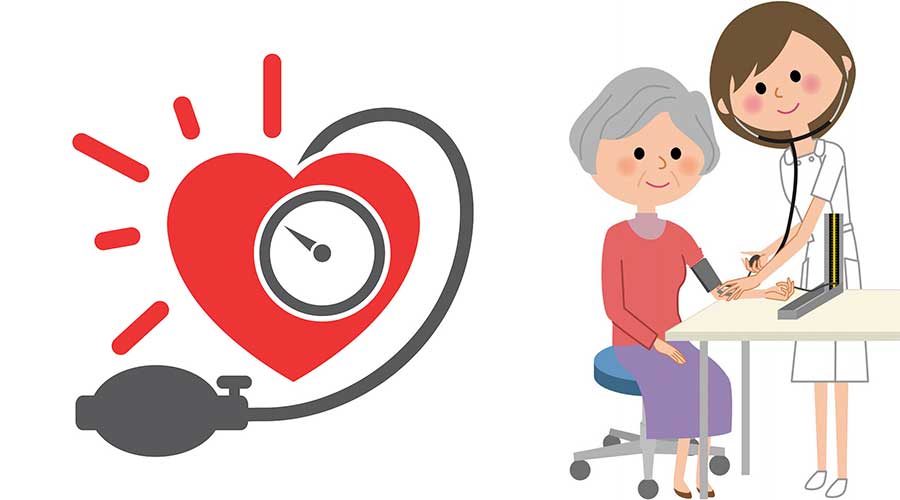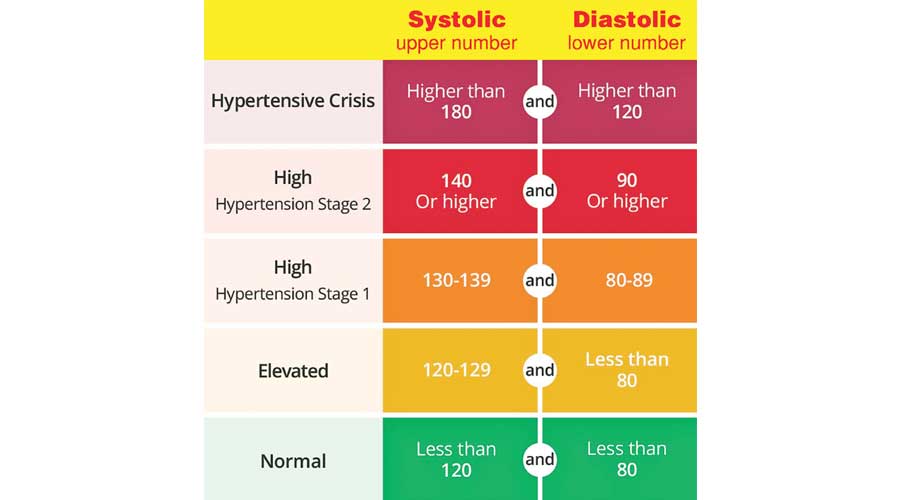Salt therapy – All you need to know
- 24 Feb - 01 Mar, 2024

• Hypertension – or elevated blood pressure - is a serious medical condition that significantly increases the risks of heart, brain, kidney and other diseases.
• An estimated 1.13 billion people worldwide have hypertension, most (two-thirds) living in low- and middle-income countries.
• In 2015, 1 in 4 men and 1 in 5 women had hypertension.
• Fewer than 1 in 5 people with hypertension have the problem under control.
Blood pressure is the force exerted by circulating blood against the walls of the body’s arteries, the major blood vessels in the body. Hypertension is when blood pressure is too high. Blood pressure is written as two numbers. The first (systolic) number represents the pressure in blood vessels when the heart contracts or beats. The second (diastolic) number represents the pressure in the vessels when the heart rests between beats. Hypertension is diagnosed if, when it is measured on two different days, the systolic blood pressure readings on both days is =140 mmHg and/or the diastolic blood pressure readings on both days is =90 mmHg.

Hypertension is called a "silent killer". Most people with hypertension are unaware of the problem because it may have no warning signs or symptoms. For this reason, it is essential that blood pressure is measured regularly. When symptoms do occur, they can include early morning headaches, nosebleeds, irregular heart rhythms, vision changes, and buzzing in the ears. Severe hypertension can cause fatigue, nausea, vomiting, confusion, anxiety, chest pain, and muscle tremors. The only way to detect it is to have a health professional measure blood pressure. Having blood pressure measured is quick and painless. Individuals can also measure their own blood pressure using automated devices, however, an evaluation by a health professional is important for assessment of risk and associated conditions.
Among other complications, hypertension can cause serious damage to the heart. Excessive pressure can harden arteries, decreasing the flow of blood and oxygen to the heart. This elevated pressure and reduced blood flow can cause:
• Chest pain, also called angina.
• Heart attack, which occurs when the blood supply to the heart is blocked and heart muscle cells die from lack of oxygen. The longer the blood flow is blocked, the greater the damage to the heart.
• Heart failure, which occurs when the heart cannot pump enough blood and oxygen to other vital body organs.
• Irregular heart beat which can lead to a sudden death.
• Hypertension can also burst or block arteries that supply blood and oxygen to the brain, causing a stroke.
• In addition, hypertension can cause kidney damage, leading to kidney failure.
In most cases, actual causes of high blood pressure are unknown. However, the following risk factors are established as contributing to high blood pressure.
• Smoking: It is the single worst thing that one can do to one's health, especially for persons with high blood pressure. Nicotine constricts blood vessels, stimulates the heart and increases the rate at which fatty deposits occur within the arteries. This can increase the destruction of the arteries already caused by high blood pressure. If you smoke, quit.
• Being overweight: it can increase your blood pressure. With each extra pound, the body must increase blood volume and the number of capillaries to supply the fatty tissue. This means that the heart must work harder. Losing weight can lessen this strain on the heart.
• Excessive sodium intake: It may be detrimental to individuals who are sensitive to sodium or who have a history of high blood pressure. Therefore, avoid salty and processed foods and use herbs and seasonings for flavour rather than salt.
• Lack of exercise: Physical activity that is rhythmic (such as brisk walking, jogging, bicycling, swimming, cross country skiing and jumping rope) are best for building cardiovascular fitness.
• Alcohol: Studies have shown that consumption of as little as two drinks a day can have a harmful affect on blood pressure.
• Genetics: Blood pressure levels are correlated among families. This can be attributed to genetics, shared environment or lifestyle factors.
High blood pressure usually cannot be cured, but it can be controlled with proper treatment. Treatment options including changing diet/exercise habits and medications. However, it usually requires lifelong medication for those individuals whose blood pressure is definitely abnormal. If your clinician prescribes one or more medications for you, it is important that you take them regularly. Discuss any side effects with your health care provider, because many can be prevented by a change in medication dosage or type.
Reducing hypertension prevents heart attack, stroke, and kidney damage, as well as other health problems.
Management
• Reducing and managing mental stress.
• Regularly checking blood pressure.
• Treating high blood pressure.
• Managing other medical conditions.
COMMENTS